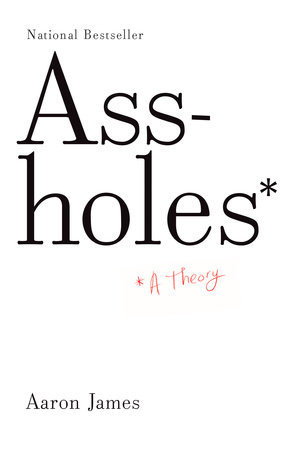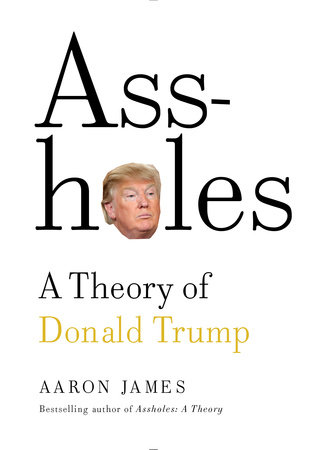LA driving, looking smart, and the philosophy of surfing
This is from a Q and A with yours truly over at “the nook,” a nice blog on things cultural, literary, and artistic, here.
aaron sat down with ‘the nook’ today and generously answered some questions that were burning our chapped, winter lips:
the nook: some of the best public relations lines i’ve ever read can be enjoyed on amazon’s book page for ‘Assholes’: ‘asshole management begins with asshole understanding. much as machiavelli illuminated political strategy for
princes, this book finally gives us the concepts to think or say why assholes disturb us so, and explains why such people seem part of the human social condition, especially in an age of raging narcissism and unbridled capitalism.’from my perspective, after sixteen years in new york, ‘asshole,’ seems like a religion. we new yorkers become devoted to it (as a means of survival, really.) the city shows you so much love, and grief, and heartache, and struggle, and raw humanity on an everyday basis. after awhile, being an asshole is your only sanctuary. what say you to your friends on the right coast, as frost rolls over the east and our inner assholes begin to shiver deep within?
aaron: if it’s any consolation, i’m willing to bet that there are more assholes per capita in los angeles than in new york, not that you don’t have them in abundance… but we, after all, have hollywood, along with fairly confined areas of public space, in a car culture that depersonalizes social interactions. in the buzzing organism that is manhattan-by-foot, it is harder to act like an asshole when you are constantly confronted with the reality and comparable needs of others. you have to be pretty brazen not to spontaneously coordinate with an approaching fellow pedestrian to avoid collision, insisting that *she* must move out of *your* way.
here in so cal, we are all about our right of way on the road, which apparently includes a moral right not to slow down for a car that needs to change lanes. we naturally express our outrage over the few seconds of lost time by tailgating the interloper, abruptly passing, and conspicuously sneering.
the nook: i stand in awe of any person who completes a doctorate in philosophy at harvard. when i completed undergrad, i had to choose between striving toward a phd in comparative lit, or going for my mfa in fiction. i chose the mfa, and i’m not sorry, but i do hide a secret shame, because my reasoning was pretty much: i don’t want to learn old english. (i looked at beowulf, and said, ‘not today, brother.’) can you talk a bit about some of the differences between publishing as an academic, and publishing a books like ‘Assholes’?
aaron: gosh, thanks. i had a great time in grad school, though we definitely all agreed that writing for a popular audience was not important, or at best it was a diversion from better uses of one’s time—something you could *eventually* come around to after your serious work was behind you. i’ve had to work at letting go of that idea, without becoming any less serious about my serious philosophical work. i’ve done that by trying to write for a wide audience using a serious, potentially novel philosophical approach. if i thought i was just warming over ideas for a general audience, i probably would rather just spend my time working at my usual academic pursuits.
in the writing process itself, i also had to learn not to worry about appearing smart to my academic colleagues and friends—to just let those appearances go. instead, you have to be resolute about addressing the intelligent reader and earning the right, in his or her eyes, to bring in more academic ideas. for someone who never learned to write, except in academic mode, and who, after all, does care to some extent what respectable academics think, this is all a lot harder than it may seem.
the nook: so, you’re currently percolating a book about surfing… sounds fascinating! i grew up on the little barrier island of long beach, ny, and surf culture was a part of my childhood (though i’m sure it was nowhere near as intense or pervasive as in ca). there’s something very vulnerable about surfing that makes it unique among “sports.” can you give us a taste of your thinking on the subject?
aaron: there’s been a lot of media lately that glorifies surfing. the first task is to explain why much of that is at odds with the gritty, real life of a surfer—our base, junkie-like dispositions, our anxiety, competitiveness and conflict that comes along with the surfing line up, our conflicted relationship to the environment, and the untold toil we undertake for what is often a fleeting moment of glory. life as a surfer is a microcosm of the human condition in that way.
and yet, i want to argue that surfers have a deep appreciation of certain very important truths, by virtue of their engagement in the distinctive act of ‘surfing a wave.’ they grab hold of a set of ideas and values (despite mainly failing them in practice), and these ideas and values provide an answer to the basic questions that confront advanced capitalism in a world of ecological scarcity, with developing countries struggling to rise. we have to learn how to live rather than produce things—to go surfing—if developing countries are going to have a fair chance to catch up. and this requires us to rethink conventional, “static” views of the relationship between government and society and, ultimately, the meaning of life itself. even if i can’t offer a full defense of the quintessential ‘surfer’s view,’ i’m hoping to at least formulate it as a coherent and distinctive response to our biggest questions.

